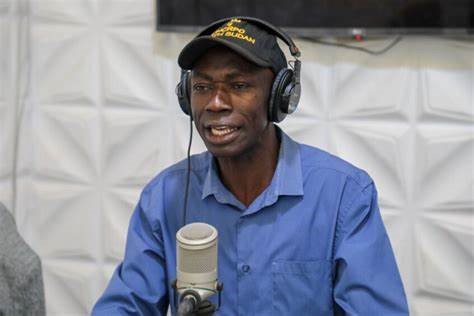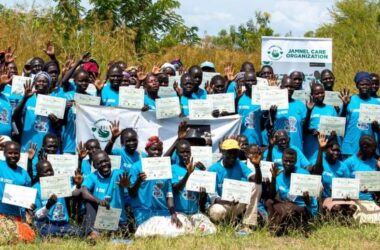By Yiep Joseph
Executive Director for Community Empowerment for Progress Organization (CEPO), Edmund Yakani, has called on the parties negotiating in Nairobi to embrace compromises in order to achieve peace.
Yakani’s concern came at the time a series of reports emerged with government delegation and South Sudan Opposition Movement Alliance (SSMOA) delegates are deadlocked in the talks, a move that created worries on what Tumaini holds for South Sudanese.
Early this month, the SSMOA and the government delegation resumed talks after months of unsuccessful consultations over the already-agreed protocols.
However, untill now the parties have failed to agree, and the two weeks suggested by President Salva Kiir and Kenyan President, William Ruto, are about to end with no good results.
During the relaunch, the head of the government delegation, Gen. Kuol Manyang Juuk, said the team intended to review the protocols within the spirit of reconstruction, reconciliation, and peace and should not cause alarm.
However, the opposition groups rejected the attempt, maintaining that talks should restart without renegotiating the protocols.
While negotiations continue, no visible success has been noted, a move that forced Activist Yakani to urge both leaders to compromise and agree on a way forward as always in the spirit of peace.
According to the statement extended to this outlet, Yakani revealed that there are serious disagreements that need compromises.
“As we speak now, they are in disagreement where the government is saying the initial protocol of Tumaini should be reopened for renegotiation while the opposition says no, they are not ready to reopen the initial protocol of Tumaini for renegotiation or for readjustment,” he said.
“We are aware that now the parties are in a position where they took a rigid position not embracing compromises. As a civil society leader, I would like to appeal to the parties under the Tumaini to embrace what the government says they are ready to dialogue about, and one of their views is that they want to present their position about their views; the particular points need the opposition to compromise and listen to the government,” he said.
He added that both sides need to embrace compromises in order to bring peace to the country.
“Both the government and the opposition need to embrace compromises in order to achieve peace,” he said.
Yakani expressed that failure to embrace compromises can affect the talks and may lead to collapse, adding that such a move will affect the political transition in the country.
“Making Tumaini fail affects the political transitional process, while the success of Tumaini is the success, so I would like to appeal to the parties to embrace compromise,” he said.
He added that it would be a political shame should parties allow the Tumaini peace initiative to die and collapse.
However, a political analyst who has been keenly following the trends surrounding the Tumaini initiative described the deadlock as a manifestation of the transactional behaviour of the political elites rooted in personal and interpersonal political calculus around the throne of power earned through the elites’ power-sharing.
Prof. Dr. Luka Biong, in an opinion piece seen by this outlet, permeates the pros and cons of the Tumaini Peace Initiative in 3 marginal points, namely, new diplomatic shuttling, postponement of talks, and breakdown of talks.
To unlock the deadlock, the analyst suggested President William Ruto and the mediation team need to visit Juba again and ensure clear directives to the delegation of the government about the joint communique and urge the delegation to accept the parallel discussion of concerns raised by the government about the eight protocols and responsibility sharing advanced by the opposition.




